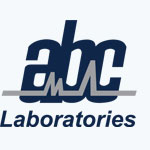|
|
|
Import Tolerance
Subhead Needed
A U.S. tolerance (called a Maximum Residue Limit or MRL in Canada) is the maximum residue level of a pesticide permitted in or on food or feed grown in the U.S. or imported into the U.S. from other countries. When no registration exists for the pesticide on the food or feed commodity to be imported, an import tolerance (or tolerance exemption) must be established to allow the commodity to be lawfully imported into the U.S. or Canada and to demonstrate that it meets appropriate food safety standards.
ABC Laboratories provides both the field management and residue analytical services necessary to conduct import tolerance studies. The field management phase is provided through its alliance partner, Pan American Research & Development (PARD). PARD is headquartered in Madison, Florida, with field resources in Mexico, Central and South America. Headed by field management expert Dr. Stephen White, PARD designs and conducts import tolerance programs based upon NAFTA requirements. The Alliance handles all arrangements for the export and import permits for sample shipment to ABC Laboratories where are samples are processed and analyzed, and reports prepared.
Field Capability Locations
- Mexico
- Central America (Costa Rica, Guatemala, Honduras, and Panama)
- South America (Ecuador, Columbia, Peru, Chile, Argentina, and Brazil)
|
|
| Crop Experience |
|
Apples
Avocado
Banana
Citrus
Coffee
Grapes
Hops
Lettuce |
|
Lychee
Maize
Mango
Papaya
Peaches
Peanuts
Pears
Potatoes |
|
Pineapple
Rice
Soybean
Starfruit
Sugarcane
Tomatoes
Wheat
|
|
|
|
|
|
|
 |
Crop sample processing at ABC Laboratories' Chemical Product Development Facility. |
|
|
 |
 |
Sample extraction at ABC Laboratories' Chemical Product Development Facility. |
|
|
|
|
|
|
|
|
|

